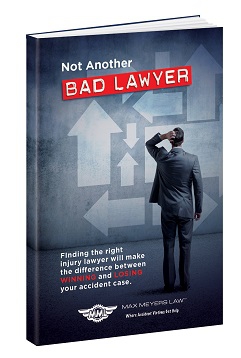Did you get adequate council? Was the judge bias or corrupt? Did the prosecutor alter, remove, hid or lie about evidence? Where your constitutional rights abused?
What method could be used to have a lawyer's license revoked?
The process to have a lawyer's license revoked typically involves filing a complaint with the appropriate disciplinary authority and demonstrating that the lawyer has engaged in unethical or unlawful conduct. The specific procedures can vary by jurisdiction, but here is a general outline of the steps that might be involved:
- Contact the State Bar or Disciplinary Board:
- Identify the state bar association or disciplinary board responsible for overseeing attorney conduct in the jurisdiction where the lawyer is licensed.
- Visit the organization's website or contact them directly to obtain information on the complaint process.
- Gather Evidence:
- Collect evidence that supports your claim of unethical or improper conduct by the attorney. This may include documents, communications, or other relevant materials.
- File a Complaint:
- Prepare a formal complaint against the lawyer. This usually involves submitting a written statement detailing the alleged misconduct.
- Follow the specific guidelines provided by the disciplinary authority for filing a complaint. Include as much detail and evidence as possible.
- Investigation:
- The disciplinary authority will review the complaint and may conduct an investigation into the allegations.
- The lawyer accused of misconduct will typically be notified of the complaint and given an opportunity to respond.
- Disciplinary Proceedings:
- If the investigation finds evidence of misconduct, the disciplinary authority may initiate formal disciplinary proceedings.
- This could involve a hearing or other proceedings where both parties present their cases.
- Possible Sanctions:
- If the lawyer is found to have engaged in unethical conduct, the disciplinary authority may impose various sanctions, ranging from a reprimand to suspension or disbarment.
- The severity of the sanction depends on the nature and severity of the misconduct.
- Appeal Process:
- Lawyers typically have the right to appeal disciplinary decisions. The process and requirements for appeals vary by jurisdiction.
It's important to note that the ability to have a lawyer's license revoked is not something that can be done lightly or without evidence of serious misconduct. The legal profession places a high value on due process, and accusations must be thoroughly investigated before disciplinary action is taken.
If you believe you have a valid complaint against an attorney, it is advisable to consult with legal professionals or ethics experts to ensure that you follow the appropriate procedures and meet the standards required by the disciplinary authority in your jurisdiction.
Are there law firms that specialize in going after bad lawyers?
Yes, there are law firms that specialize in legal malpractice cases, which involve suing or taking legal action against lawyers who have allegedly provided inadequate or negligent representation. Legal malpractice cases can arise from various situations, including negligence, breach of fiduciary duty, conflicts of interest, and other forms of attorney misconduct.
If you believe you have been a victim of legal malpractice and are seeking legal representation to pursue a case against a lawyer, you may want to consider consulting with a law firm that specializes in legal malpractice or professional liability. These firms often have experience in handling such cases and can guide you through the process of filing a lawsuit against the attorney whose actions or omissions have caused harm to your case or legal interests.
To find a law firm that specializes in legal malpractice, you can:
- Search Online Directories: Online legal directories, such as Martindale-Hubbell, Avvo, or FindLaw, often include information about law firms specializing in legal malpractice.
- Consult Bar Associations: Contact your state or local bar association for referrals to attorneys or law firms specializing in legal malpractice cases.
- Legal Referral Services: Some legal referral services connect individuals with attorneys based on their specific legal needs. These services may be available through local bar associations or legal organizations.
- Personal Recommendations: If you know someone who has pursued a legal malpractice case, consider asking for recommendations based on their experiences.
When consulting with potential law firms, be sure to discuss your specific situation, inquire about their experience in handling legal malpractice cases, and ask about their success rate in similar matters. It's important to choose a firm with expertise in this area of law to maximize your chances of a successful outcome.
Keep in mind that statutes of limitations may apply to legal malpractice cases, so it's essential to consult with an attorney promptly if you believe you have a valid claim.
The constitution is always the best route to take and these people are experts at helping you understand it.
What to do about bad and/or dishonest Lawyers:
Here is a useful starting point "Concerns About a Lawyer" resource provided by the Washington State Bar Association."
If you have concerns about the ethical conduct of a lawyer, you can file a complaint, which we they review. If you have a minor dispute with your lawyer, you can ask them for help instead of filing a complaint. If you have additional questions about the grievance process, see their FAQ About the Grievance Process or email your inquiry to [email protected].
Resolve a Dispute with Your Lawyer Instead of Filing a Complaint
To ask for help to reestablish communication with your lawyer or request your client file from your lawyer, complete the Request for Assistance Form.
File a Complaint Against a Lawyer
To file a complaint against a lawyer, read Lawyer Discipline in Washington, review the materials below and either complete the E-Grievance Form online or print and mail the Grievance Form to our office.

You can also check out this book.
Not Another Bad Lawyer
What to do about bad and/or dishonest Prosecuting Attorneys:
Help! I Think the Prosecutor Mishandled My Case: What Can I Do?
What to do about bad and/or dishonest Judges:
What Can You Do If a Judge is Unfair?
While I am not able to provide legal advice, I can offer some general suggestions for someone who may be dissatisfied with their attorney.
Keep in mind that these are not substitutes for professional legal guidance, and individuals should consult the constitution and bill of rights or a qualified attorney for advice tailored to their specific situation. Here are some non-legal suggestions:
- Communication:
- Encourage open communication with the attorney. Discuss your concerns, expectations, and any issues you may have regarding the representation.
- Clearly articulate your goals and priorities in the case.
- Second Opinion:
- Seek a second opinion from another attorney. They can review your case and provide insight into whether your current attorney is handling it appropriately.
- Documentation:
- Keep a record of all communications with your current attorney. This includes emails, letters, and notes from conversations.
- Document any concerns or issues that arise during the course of your representation.
- Research:
- Research the relevant laws and regulations related to your case. Understanding the basics can empower you to have more informed discussions with your attorney.
- Review the Contract:
- Carefully review the agreement or contract you have with your attorney. Understand the scope of their representation, fees, and any obligations on both sides.
- Bar Association Complaint:
- If you believe your attorney's conduct is unethical, you can file a complaint with the state bar association. They have procedures to investigate and address such matters.
- Mediation or Arbitration:
- Some disagreements can be resolved through mediation or arbitration. Check your agreement to see if there are provisions for alternative dispute resolution.
- Consult Another Attorney:
- Consult with another attorney to discuss your concerns about your current attorney's performance. They may provide insights into whether your concerns are valid or if there are alternative approaches to consider.
- Evaluate the Relationship:
- Consider whether there are personal or communication issues affecting the attorney-client relationship. If so, addressing these concerns directly may improve the working relationship.
Remember, these suggestions are not legal advice, and it's crucial to consult with a qualified attorney to get advice tailored to your specific situation. If you're unhappy with your current attorney, seeking a second opinion or consulting with legal professionals is a good step to ensure your rights and interests are properly represented.
List Of Resources
Here is a list of resources for you to help inform and educate you. I hope this helps in your fight against bad lawyers, prosecutors and judges.
Fight Using the Constitution
My Pick --- CommonLawful – Stand on Your Rights
Common Law: What It Is, How It's Used, and How It Differs ...
common law | Wex | US Law | LII / Legal Information Institute
THE COMMON LAW AND CIVIL LAW TRADITIONS
Common law | Definition, Origins, Development, & Examples
What is the Difference Between Common Law and Civil Law?
Fight Using The System:
What if I am Unhappy with my Lawyer?
How can I get my money back from a bad lawyer?
File a Complaint | Washington State
Could a lawyer be prosecuted for giving bad or unsound ...
When Should You File A Complaint Against An Attorney
Washington Law Cases
How to get your money back from a bad lawyer:
How to Demand a Refund From an Attorney
How Do You Fire Your Lawyer and Get Your Money Back?
Questions and Answers:
Question:
What help am I afforded by the constitution in the legal system? As in how can I get officers of the court to work on my behalf?
Answer:
The U.S. Constitution provides several rights and protections for individuals within the legal system. Here are some key constitutional provisions that may be relevant:
- Right to Counsel (Sixth Amendment): The Sixth Amendment guarantees the right to legal representation. If you are facing criminal charges and cannot afford an attorney, the court is required to appoint one for you.
- Fourth Amendment - Search and Seizure: Protects against unreasonable searches and seizures. This means law enforcement generally needs a warrant based on probable cause to search your property or arrest you.
- Fifth Amendment - Due Process and Self-Incrimination: This amendment protects your right to due process of law, ensuring fair treatment in legal proceedings. It also provides the right against self-incrimination, meaning you cannot be compelled to be a witness against yourself.
- Fifth and Fourteenth Amendments - Equal Protection: These amendments guarantee equal protection under the law. You cannot be treated unfairly or discriminated against based on factors such as race, gender, or religion.
- Eighth Amendment - Cruel and Unusual Punishment: Protects against excessive bail and cruel and unusual punishment. This means that punishments must not be overly harsh or severe.
- Access to the Courts: While not explicitly stated in the Constitution, the right to access the courts is considered a fundamental right. This includes the right to file lawsuits and seek redress for grievances.
To get officers of the court (such as attorneys) to work on your behalf:
- Right to an Attorney: If you are involved in a criminal case and cannot afford an attorney, the court should appoint one for you.
- Hiring an Attorney: If you have the means, you can hire an attorney of your choice. Look for an attorney who specializes in the relevant area of law and has a good reputation.
- Legal Aid Organizations: If you cannot afford an attorney, you may be eligible for assistance from legal aid organizations that provide free or low-cost legal services to individuals with limited financial means.
- Public Defender's Office: In criminal cases, public defender offices provide legal representation to individuals who cannot afford private counsel.
Remember, it's crucial to understand your specific situation and consult with a legal professional for advice tailored to your circumstances. Legal aid organizations and bar associations in your area can provide guidance on finding affordable legal representation.
Question:
Does the constitution say to defend yourself rather than having an attorney?
Answer:
While the U.S. Constitution does not explicitly state that individuals must defend themselves in legal proceedings, it does provide the right to self-representation. The relevant clause is found in the Sixth Amendment, which states:
"In all criminal prosecutions, the accused shall enjoy the right... to have the Assistance of Counsel for his defense."
This means that individuals have the right to be represented by an attorney in criminal prosecutions. However, if a person chooses to waive this right, they have the option to represent themselves. This is known as the right to self-representation, and it's often referred to as "pro se" representation.
It's important to note that while individuals have the right to represent themselves, it is generally not advisable unless they have a solid understanding of legal procedures and are capable of presenting a strong defense. The legal system can be complex, and having legal expertise can significantly impact the outcome of a case.
In civil cases, the right to self-representation is also generally recognized, but again, seeking professional legal advice is often recommended to navigate the complexities of the legal process effectively.
If someone chooses to represent themselves, they should be aware of the potential challenges and consider seeking legal guidance or assistance when needed. Many legal aid organizations offer resources to pro se litigants to help them understand the process and requirements.
Question:
If I use the constitution and defend myself what help can I expect from the courts provided by the constitution and bill of rights? And how do I attain that help?
Answer:
If you choose to represent yourself (pro se) in court while relying on constitutional rights and protections, there are certain safeguards and procedures in place to ensure a fair legal process. Here are some key aspects to consider:
- Due Process (Fifth and Fourteenth Amendments): The Constitution guarantees the right to due process of law. This means that you are entitled to notice of the charges against you, an opportunity to be heard, and a fair and impartial hearing.
- Right to a Fair and Impartial Trial (Sixth Amendment): The Sixth Amendment ensures the right to a fair and impartial trial. This includes the right to present evidence, cross-examine witnesses, and make arguments in your defense.
- Access to Evidence: You have the right to access evidence that is relevant to your case. This includes evidence that the prosecution intends to use against you.
- Protection Against Unreasonable Searches and Seizures (Fourth Amendment): If there are issues related to the gathering of evidence through unreasonable searches or seizures, you may be able to challenge the admissibility of such evidence.
- Self-Incrimination (Fifth Amendment): You have the right to remain silent and cannot be compelled to testify against yourself. This means you can choose not to answer questions that may incriminate you.
- Equal Protection (Fifth and Fourteenth Amendments): You are entitled to equal protection under the law, meaning that the court should treat you fairly and without discrimination.
To attain help within this framework:
- Research and Preparation: Familiarize yourself with the relevant laws, rules, and procedures applicable to your case. Legal research and understanding the specifics of your situation are crucial.
- Legal Aid and Resources: Utilize legal aid resources and organizations that provide assistance to pro se litigants. Many courts have self-help centers or provide resources online to guide individuals without legal representation.
- Consult with Legal Professionals: While representing yourself, you can still seek advice from legal professionals. Some may offer limited scope representation or consultations to help you navigate specific legal issues.
- Follow Court Procedures: Adhere to court rules and procedures. This includes filing documents on time, attending hearings, and respecting court orders.
Remember, representing yourself can be challenging, and the legal system can be complex. Seeking legal advice, even if it's not full representation, can help you make informed decisions and present a stronger case. Legal aid organizations, bar associations, and self-help resources provided by the court are valuable tools for individuals representing themselves.
Question:
According to the Constitution, which individuals or entities within the court system are mandated to provide assistance to someone representing themselves? For instance, is there an obligation for court clerks or any specific personnel to offer help?
Answer:
The Constitution does not explicitly mandate specific court personnel to assist individuals representing themselves. However, court clerks, self-help centers, librarians, and online resources are often available to offer guidance on procedural matters, access to forms, and general information about the legal process. While they can provide valuable assistance, it's important to note that they are not a substitute for legal representation, and seeking legal advice, even on a limited basis, is advisable for a more effective defense.
While the Constitution guarantees the right to a fair trial and the assistance of counsel, it does not specifically mandate that court personnel, such as clerks, are obligated to help individuals represent themselves. However, many court systems provide resources and assistance for individuals representing themselves, commonly known as pro se litigants.
Here are some court personnel and resources that may be available to help you navigate the legal process:
- Court Clerks: Court clerks are responsible for administrative tasks within the court. While they may not provide legal advice, they can often assist with procedural information, form availability, and general guidance on court processes. They can help you understand how to file documents, meet deadlines, and access court records.
- Self-Help Centers: Some courts have self-help centers specifically designed to assist pro se litigants. These centers may provide resources, forms, and procedural information to help individuals understand and navigate the legal process.
- Librarians: Law librarians in courthouse libraries can be valuable resources for legal research. They may help you locate legal materials, provide guidance on how to use legal research databases, and offer general information about legal procedures.
- Online Resources: Many court systems have online resources and guides for pro se litigants. These may include instructional materials, sample forms, and FAQs to help you understand court processes.
- Legal Aid Organizations: While legal aid organizations primarily offer assistance to low-income individuals, they may provide resources and guidance to pro se litigants in general. Some organizations conduct workshops or clinics to help individuals understand legal procedures.
It's important to note that while these resources can offer valuable assistance, they are not a substitute for legal representation. Representing yourself in court can be challenging, and seeking legal advice from a qualified attorney, even on a limited basis, is often advisable. If you cannot afford an attorney, you may explore options for free or low-cost legal assistance through legal aid organizations or pro bono programs.
Question:
What services are afforded to me by the court if I defend myself in a trial?
Answer:
If you choose to represent yourself in a trial (pro se), the court may provide certain services and resources to help you navigate the legal process. While these services can vary by jurisdiction, here are some common offerings that you might find:
If you choose to represent yourself in a trial (pro se), the court may provide certain services and resources to help you navigate the legal process. While these services can vary by jurisdiction, here are some common offerings that you might find:
- Access to Legal Forms: Courts often provide access to standard legal forms that are commonly used in various types of cases. These forms may include pleadings, motions, and other documents necessary for court proceedings.
- Court Clerks Assistance: Court clerks can offer general guidance on court procedures, filing requirements, and deadlines. They may help you understand how to submit documents, pay fees, and navigate the administrative aspects of your case.
- Self-Help Centers: Some courts have self-help centers specifically designed to assist pro se litigants. These centers may offer informational resources, workshops, and assistance with filling out legal forms.
- Publicly Accessible Legal Databases: Courts often provide access to legal databases and resources that can help you conduct legal research. This may include case law, statutes, and other relevant legal materials.
- Librarian Assistance: Courthouse libraries, staffed by law librarians, may be available to assist you in locating legal resources, conducting legal research, and understanding legal terminology.
- Online Resources: Many court systems have websites with dedicated sections for pro se litigants. These may include guides, FAQs, and links to relevant legal resources to assist you in preparing your case.
- Public Defenders (in Criminal Cases): In criminal cases, if you cannot afford an attorney and you face the possibility of imprisonment, the court may appoint a public defender to represent you. However, this service is typically only available in criminal cases.
It's important to note that while these resources can provide valuable assistance, representing yourself in court can be challenging, and the court personnel are not allowed to provide legal advice. They can offer general information about procedures, but they cannot advocate on your behalf or give you personalized legal guidance.
If possible, consider seeking legal advice from an attorney, even on a limited basis, to ensure that you understand the legal implications of your case and can present the strongest possible defense.




